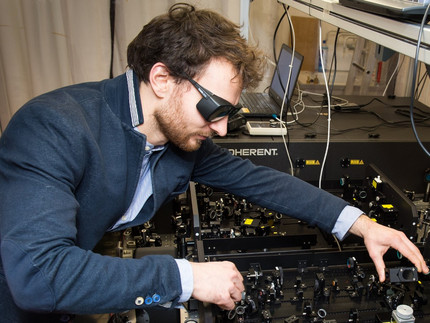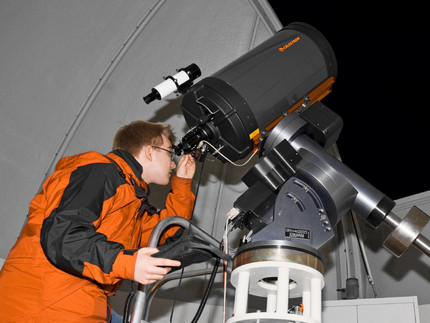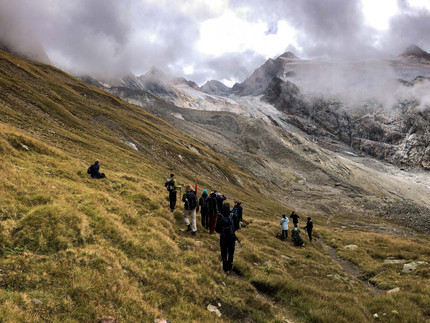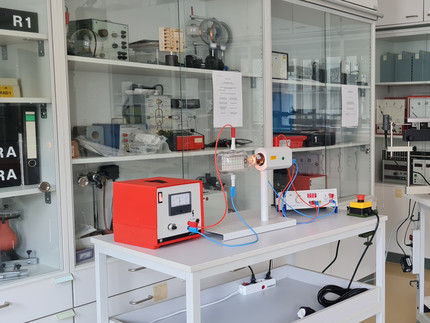Physics | Master
The physics master's program at the University of Potsdam, entirely held in German can be started in the summer and winter semesters. After basic training in the physics bachelor's program, you can specialize in a research area in the first semester of the program, in addition to general in-depth courses. The universal in-depth education focuses on higher topics in experimental and theoretical physics, as well as experimental and numerical methods for collecting and analyzing data.
After modules for extracurricular supplementation have been finished, a master's thesis is submitted in the selected in-depth module with the institute's internal working groups or an external research institute.
- (only available in German)
- (only available in German)
Astrophysics | Master
The Master's program in Astrophysics, held entirely in english, teaches subject-specific and practice-oriented skills for researching the universe and its components. The Master's program can be started in the winter or summer semester. In addition to fundamental research in Astrophysics I & II, students can acquire a wide variety of research and data analysis methods required in the field.
Due to the institute's connections with local research institutions such as the Leibniz Institute for Astrophysics Potsdam, the German Electron Synchrotron and the Max Planck Institute for Gravitational Research, students have many opportunities to get involved in current research questions. After completing the preliminary phase for the master's thesis with research training and an introductory project, the master's thesis can be written in the institute's internal working groups or external institutions.
CLEWS | Master
The fully English CLEWS Master's is a study program held between our institute and the Institute of Environmental Sciences and Geography. The Master's begins in the winter semester and places a strong focus on scientific handling of the field of climate science research and communication with politics and the public. Depending on the previous Bachelor's degree, the Master's begins with basic training in geosciences or physics.
Following this, elective modules on the essential topics of the Master's degree - Climate, Earth, Water and Sustainability - must be completed. In addition, important skills for data acquisition and analysis in environmental sciences are taught. The study program is concluded with a research project and a Master's thesis.
Physics Teaching Degree Secondary Education I & II | Master
The master's degree in physics teaching for German secondary education I and II builds on the bachelor's degree in teaching previously completed at the UP. Studying with a bachelor's degree in teaching from another university is possible if the institute can determine equal value in the previous bachelors degree. Starting with modules in physics and another teaching subject, the knowledge in the teaching-oriented research areas will be expanded. In addition, an elective module in a specialized scientific field must be completed.
During the master's degree, the student must choose to specialize in secondary education I or II. In both cases, a psycho-diagnostic internship and a school internship must be completed at a school in Brandenburg or a partner school abroad. The degree is then concluded with a master's thesis.
- (only available in German)
- (only available in German)




